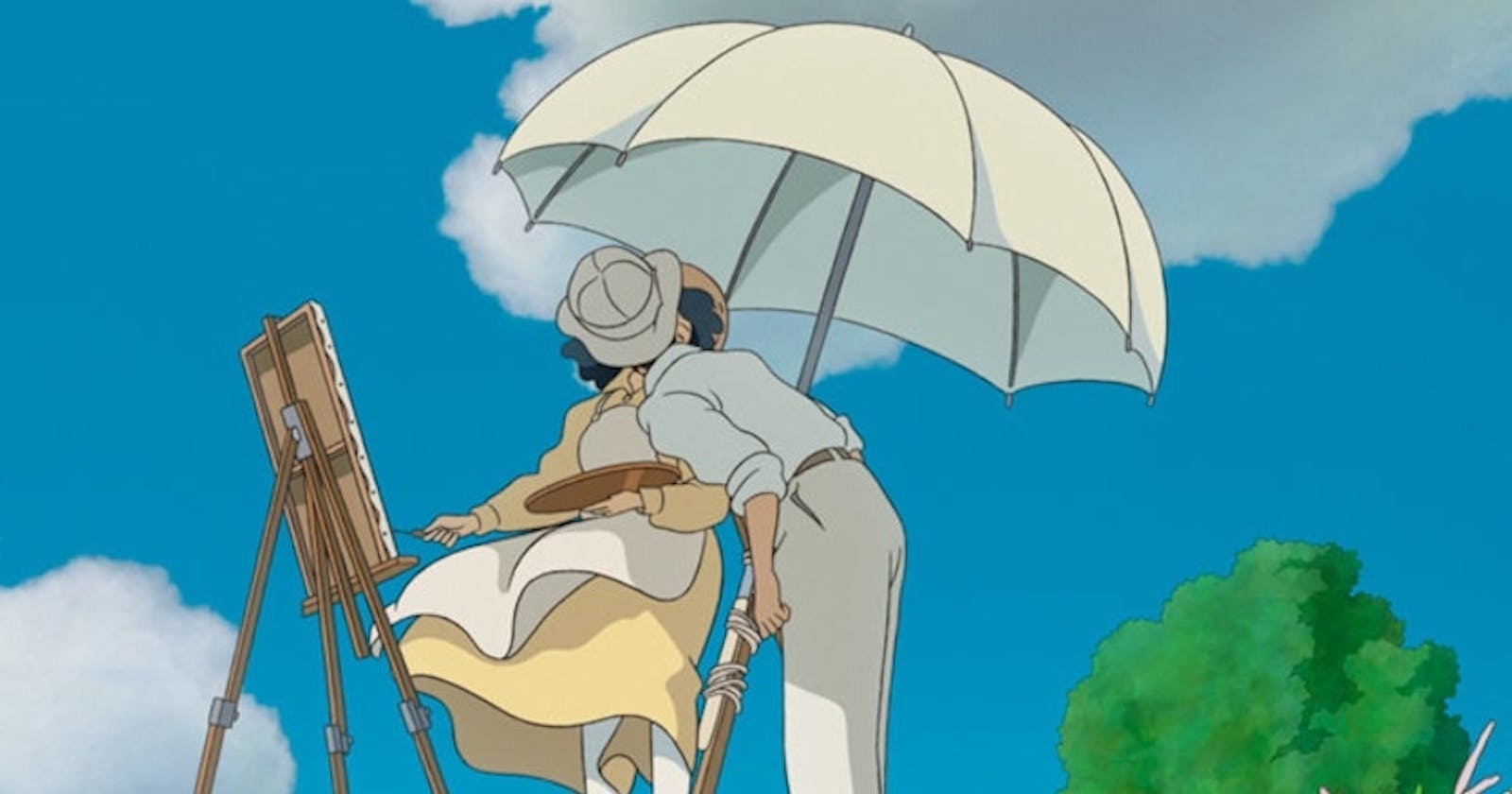I learned about the origins of the name Ghibli yesterday. From Wikipedia:
The name Ghibli was given by Hayao Miyazaki from the Italian noun ghibli, based on the Libyan-Arabic name for the hot desert wind of that country, the idea being the studio would “blow a new wind through the anime industry.” It also refers to an Italian aircraft, the Caproni Ca.309 Ghibli.
The motifs of wind and aircraft (and even Caproni) are put in the forefront in this film. Miyazaki’s reverence for the craft of building an airplane provides some clear analogies to the craft of animation, and the act of creation in general. We see this in Jiro’s dreams, in his hard work, and my favourite bit was in the depiction of Jiro’s “flow state”, where he’s fully concentrated on his work and everything else fades into the background, and he and his desk are flying through the air.
“Artists are only creative for 10 years … we engineers are no different. Live your 10 years to the full.” What an audacious thing for the film to say after Miyazaki has put out banger after banger since 1979.
This is a unique Miyazaki in that it’s grounded in the real world, and about real people. And yet the fantasy element is still there, because the real world is just as wondrous. I’ve read some Miyazaki quotes where he often thinks about his intended audience when choosing the subjects of his films. He wants to make films for children of this age range, or that age range. The Wind Rises doesn’t feel like a children’s film at all. It feels like a film that Miyazaki made for himself, and I love that a lot. Jiro looks up to Caproni the same way that Miyazaki looks up to Jiro. It’s really fascinating to think about how so much creation is built on the shoulders of giants.
(It’s certainly a bit uncomfortable to romanticize the creation of warplanes, but I think it’s possible to acknowledge that without detracting from the beauty of this film.)
Miyazaki has always seemed uninterested in depicting adult romance in his previous works, so it was a delightful surprise that we got to witness some here. The genre-shift into romance for the second half of the film felt completely natural, and there were so many touching moments that made my heart feel full.
Jiro’s constant kindness to others shows us that dedicating your life to your individualistic dreams is not necessarily incompatible with providing care and tenderness to others. Take notes, Damien Chazelle.
4.5 / 5 stars.
Originally posted to my Letterboxd.

